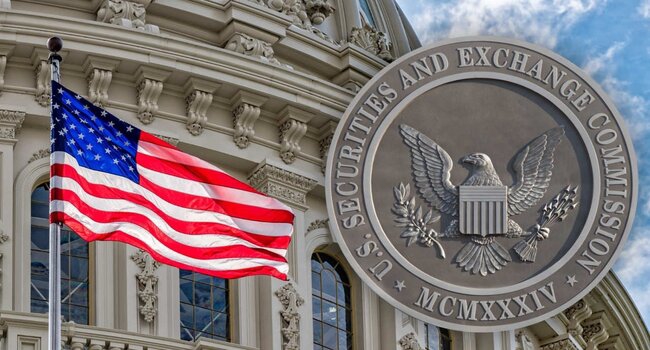Highlights:
- SEC charged Cumberland for operating as an unregistered securities dealer.
- Cumberland allegedly sold over $2 billion in crypto classified as securities.
- Cumberland criticized the SEC for hindering crypto innovation.
The Securities and Exchange Commission (SEC) charged Chicago-based crypto market maker Cumberland DRW on October 10 for allegedly operating as an unregistered securities dealer. According to the SEC, the company has sold more than $2 billion in crypto classified as securities since March 2018.
The SEC has filed a lawsuit against the crypto trading company Cumberland DRW LLC, accusing it of operating as an unregistered securities dealer. Similar to previous SEC lawsuits against Binance and Coinbase, the SEC has also listed a “non-exhaustive list” of cryptocurrencies…
— Wu Blockchain (@WuBlockchain) October 10, 2024
The agency claims that Cumberland’s trading activities, through its platform Marea and over the phone, violated federal securities laws protecting investors. The SEC asserted that five tokens handled by Cumberland are securities. These include Polygon (MATIC), Solana (SOL), Cosmos (ATOM), Algorand (ALGO), and Filecoin (FIL). The agency previously identified all of these tokens as securities.
SEC stated:
“Cumberland acted as a securities dealer but failed to register as a securities dealer with the Commission, in violation Section 15(a) of the Securities Exchange Act of 1934 (the ‘Exchange Act’).”
Additionally, the complaint emphasized that the company’s self-identified role as a leading liquidity provider in the crypto market strengthens these claims. The complaint was lodged in the U.S. District Court for the Northern District of Illinois, with the agency seeking permanent injunctive relief, disgorgement of ill-gotten gains, prejudgment interest, and civil penalties.
Cumberland Responses to the SEC
In a statement on X, Cumberland asserted that the SEC is attempting to stifle innovation and hinder companies from participating in crypto. The market maker indicated that it would not alter its operations in response to the enforcement action by the US regulator.
Cumberland claimed it registered as a dealer-broker in 2019. However, it was later found that the registration only covered Bitcoin (BTC) and Ether (ETH), not the other tokens. The company also noted it had five years of discussions with the SEC on this issue. Moreover, Cumberland highlighted that it has been in discussions with the regulator for the past five years regarding its operations. This includes providing written summaries and statements, as well as interviews with the firm’s personnel.
The firm stated:
“We have engaged in five years of good-faith discussions with the SEC on this point […] Today’s complaint is the first time the SEC has outlined the specific transactions at issue.”
Cumberland assured that the SEC’s actions would not affect its business operations or the assets in which it provides liquidity. We’re ready to defend ourselves again,” the company stated, positioning itself as the latest target of the SEC’s heightened scrutiny of digital assets.
— Cumberland (@CumberlandSays) October 10, 2024
Agency Stance on Crypto Assets as Securities
Jorge G. Tenreiro, Acting Chief of the Securities and Exchange Commission’s Crypto Assets and Cyber Unit (CACU), highlighted the importance of crypto dealers registering with the SEC.
He stated:
“The federal securities laws require all dealers in all securities to register with the Commission, and those who operate in the crypto asset markets are no exception.”
Despite the crypto industry’s arguments that digital assets should be classified as commodities, the regulator insists that many crypto assets fulfill the legal definition of securities. This case is part of the SEC’s wider effort to enforce compliance with securities laws in the crypto market.
In June 2023, the SEC charged Coinbase for operating its platform as an unregistered securities exchange, broker, and clearing agency. The agency also alleged that Coinbase did not register the offer and sale of its crypto asset staking program.
Earlier in January 2023, the SEC took legal action against Genesis Global Capital and Gemini Trust Company, claiming their Gemini Earn crypto lending program constituted an unregistered securities offering. These actions highlight the SEC’s focus on regulating the crypto industry and ensuring firms comply with federal securities laws effectively.





